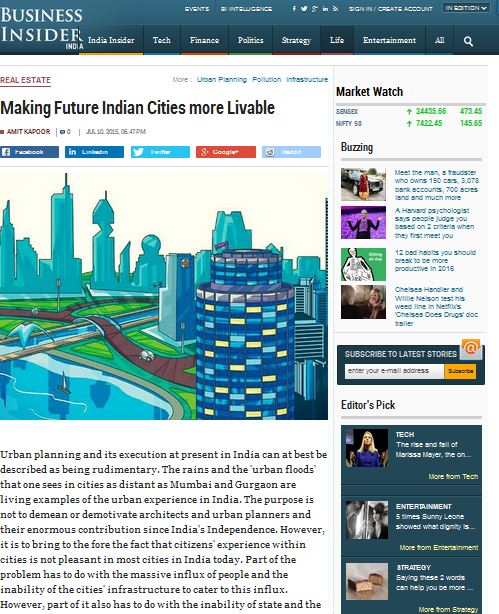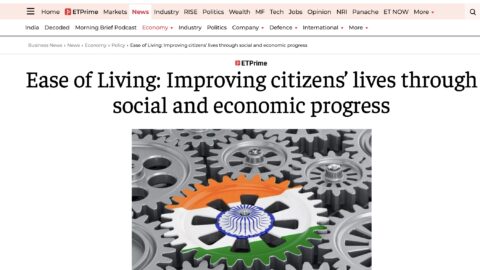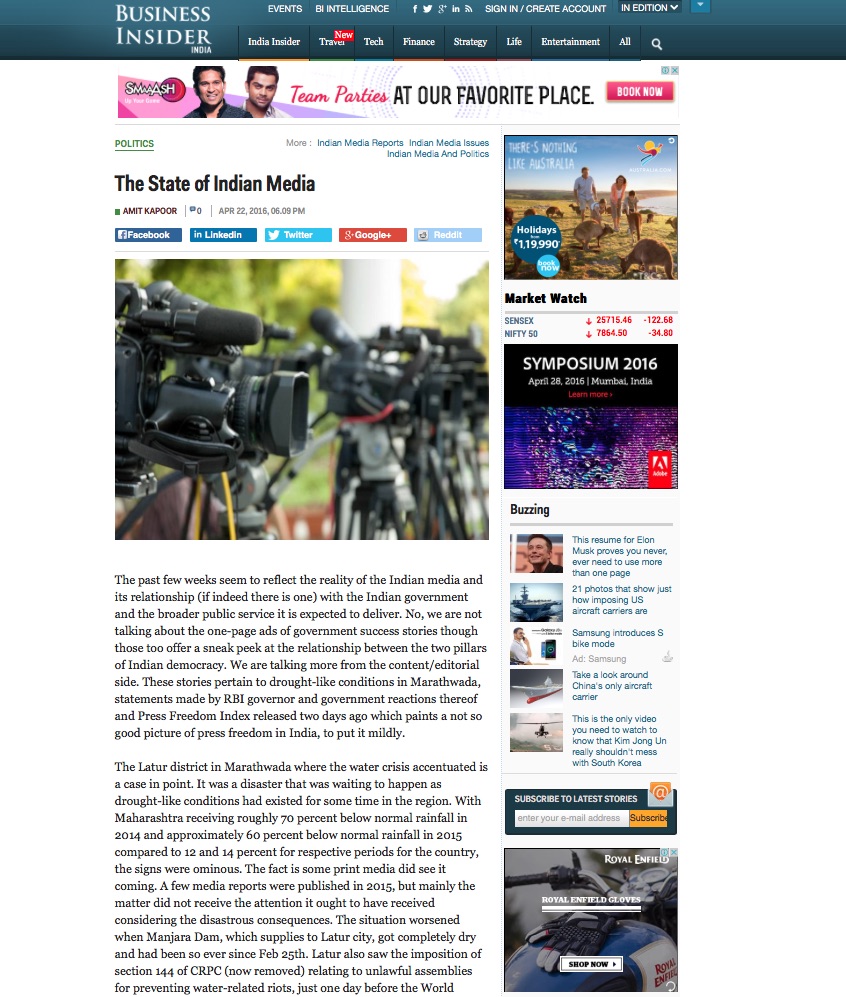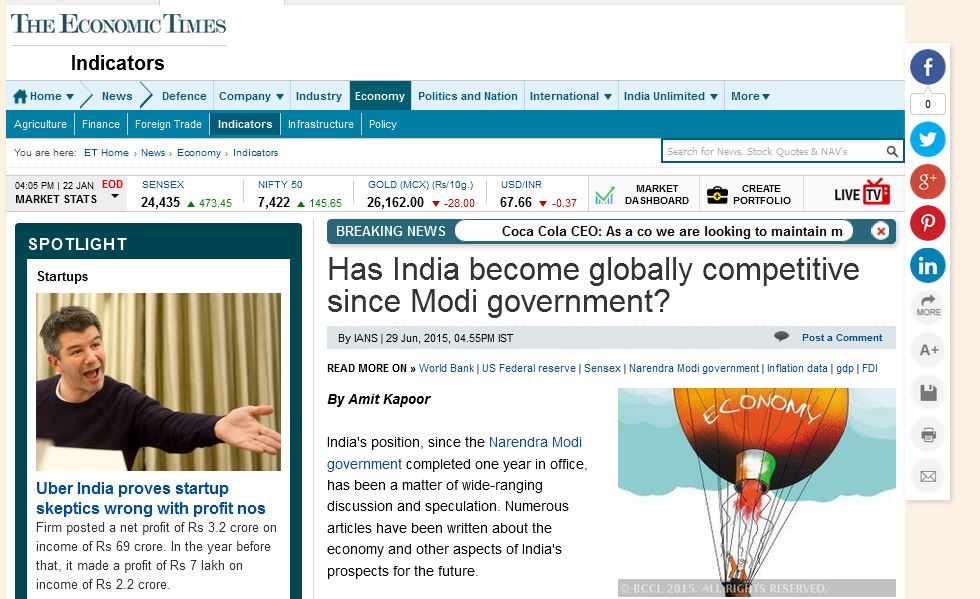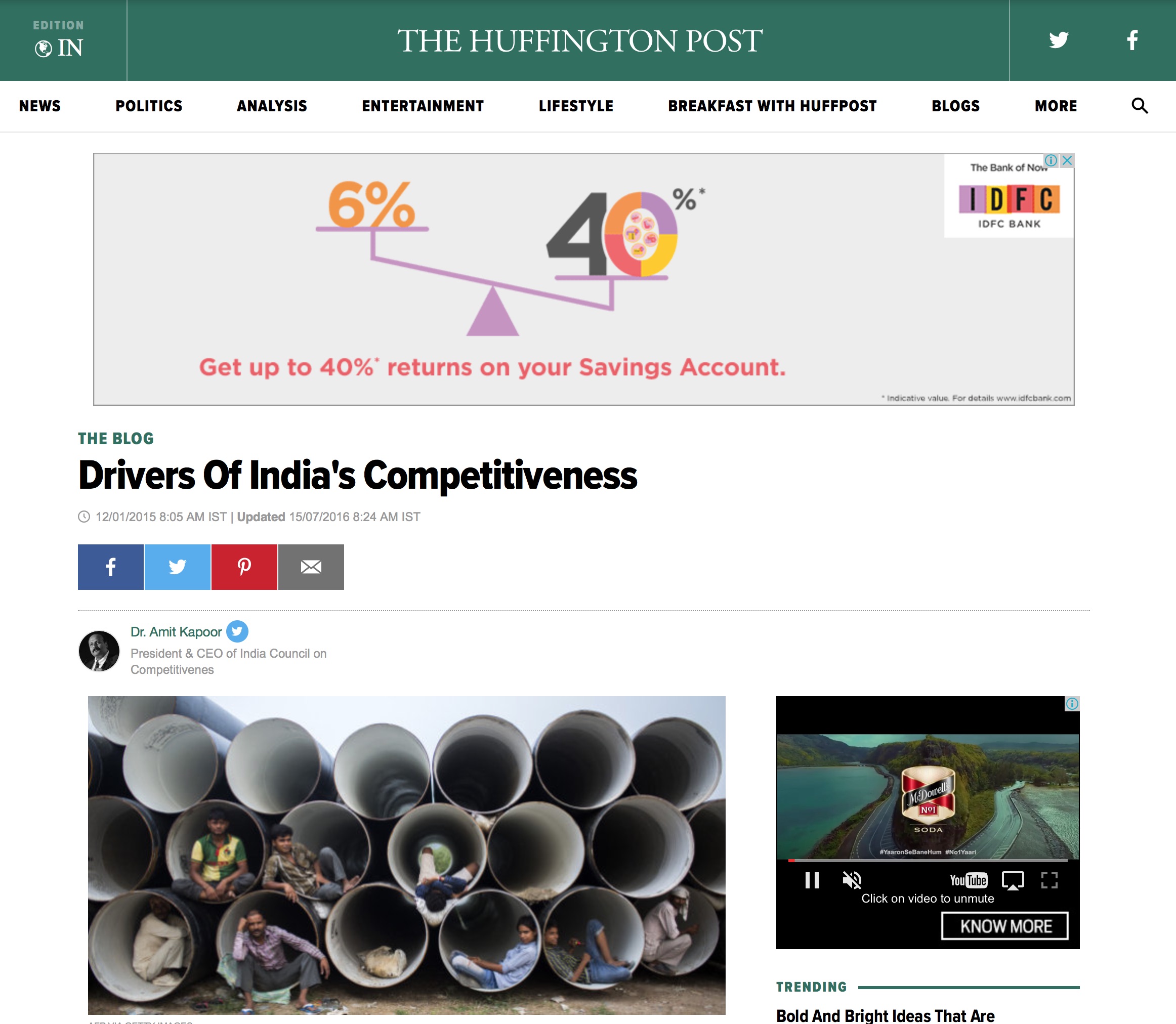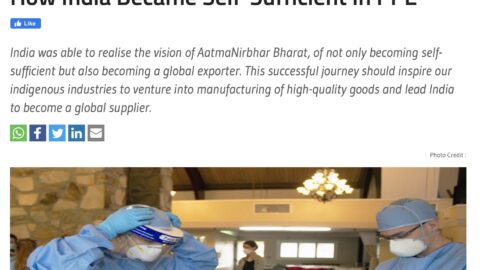By Amit Kapoor and Arman Sharma
Developing new drugs is a challenging endeavour. It is a process that requires years of basic research to characterize new therapeutic molecules and validate them in clinical settings. The unpredictability of biology and physiological variations among individuals makes the successful introduction of a new therapy into the market a daunting task. Large firms in the United States (US), despite incurring billions of dollars in this process, have a success rate of less than ten percent. Especially as the regulatory environment in the US tightens and less capital is available for new biotech ventures, US biotech companies must seriously reevaluate their approach to testing new therapeutics. While US firms may have a competitive edge in the scientific development of new therapeutics, the principal driver of costs and the most common point of failure is the real-world, clinical testing of these products. This pain point is likely to be exacerbated in the coming years due to the shift towards biologics – a type of drugs made using living organisms – which are far less predictable in terms of their expected effectiveness.
Enter India. Over the last few decades, India’s aggregate population has grown and so has the diversity of prevalent diseases within the population. Its infrastructure, specifically digital infrastructure and its penetration to the individual level, has witnessed a phenomenal growth. Additionally, India’s pharmaceutical manufacturing capability has also expanded, with the country often called ‘the world’s pharmacy’. With India’s rise as a global powerhouse in healthcare and increasing domestic pressures on the US biotech industry, a US-India partnership in therapeutics development would be hugely beneficial for healthcare worldwide.
Many US biotech firms focus on chronic or late-life diseases such as diabetes, cardiovascular disease, and cancer. As India’s population has grown and basic healthcare improved, the disease burden has shifted towards these chronic conditions. For instance, ischemic heart disease prevalence increased by 130% from 1990 to 2016, with diabetes projected to double by 2045 and new cancer cases expected to reach about 2 million by 2040. A diverse disease pool at the scale of India’s population yields extraordinary opportunities for large clinical trials. Moreover, India’s number of clinical investigators doubled from 2015 to 2020 and is slated to further double by the end of 2024. Leveraging India’s healthcare ecosystem and growing clinical research capabilities, US biotech firms can expedite therapy development, gain insights into disease progression, and understand patient preferences across diverse populations.
Beyond a well-positioned patient population, India’s growing digital infrastructure offers significant opportunities for clinical trial management. Unlike the US, where antiquated technologies hinder patient recruitment and monitoring due to regulatory barriers, India’s rapid adoption of digital technologies at both the organizational and individual levels offers distinct advantages for conducting trials effectively. With 71% mobile device penetration (projected to reach 96% by 2040) and the resounding success of nationwide digital initiatives like Aadhar and the Universal Payments Interface (UPI), India has demonstrated excellence in managing digital platforms at scale. US biotech firms can leverage this capacity to efficiently recruit participants, remotely monitor patient health, collect real-time data on treatment adherence and outcomes, and streamline trial logistics. Through the National Digital Health Mission, India is already implementing technologies such as wearable devices, telemedicine, and interoperable electronic health record systems, enabling seamless integration of clinical trial activities with routine patient care.
While India’s population-level health measures and enhanced infrastructure are relatively recent developments, its historical forte in healthcare has been pharmaceutical manufacturing. Supplying 20% of the world’s generic drugs and being home to the largest vaccine manufacturer in the world, India has a long history of innovation in therapeutic manufacturing technology. As US biotech firms increasingly make the switch to biologics, there are likely to be major challenges with domestic manufacturing. Biological therapeutics manufacturing often requires the maintenance of live cells which is an expensive and resource-intensive activity; by contrast, Active Pharmaceutical Ingredients (APIs) /pharmaceutical precursors are abiotic and stable, making them far cheaper to manage. India’s competitiveness in therapeutic manufacturing has come from the process innovation that Indian firms have undertaken to drive down costs. As clinical trials and data sharing with US biotech firms are occurring in India, there exist opportunities to, in parallel, innovate in the manufacturing space. This would help clear a massive hurdle to scale new therapeutics if and when they make it to market. This will also help developers create therapies with manufacturing requirements in mind to further improve the probability of long-term success.
For this to be a fruitful partnership, however, the Indian regulatory establishment needs to be especially prepared for addressing potential Intellectual Property disputes and ethical issues surrounding clinical trials. The ICMR has experience in facilitating international partnerships, the 2017 development of the ICMR-Pfizer Center for AMR Research and Education being a case in point. It can leverage this experience to build a legal team/framework to settle monetary disputes between US biotech firms and Indian CROs who could be critical in the refining of therapies. Fair and transparent policies, made clear to US biotech firms before entry into India, will be crucial for a long-term sustainability of the partnership. Additionally, the government will have to take measures to safeguard Indian patients. The movement of clinical testing to Low- and Middle-Income Countries (LMIC) settings can have huge benefits for the host country’s population; it can provide jobs and bring underserved people into the healthcare system. However, there is a risk that poor and uninformed patients are given unsafe treatments without appropriate disclosures or compensation. A strengthened patient-focused supervisory apparatus, one that is involved with every step of trials, is essential for safe and productive trials.
By harnessing India’s diverse healthcare landscape, its robust digital health infrastructure, and its legacy of manufacturing innovation, US biotech firms can overcome key challenges in drug development, including high costs and uncertainties in clinical testing and manufacturing of biologics. With a prepared regulatory environment in India, this partnership will be transformative for global healthcare.
The article was published with Business World on May 18, 2024.




